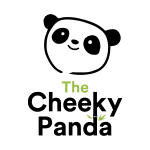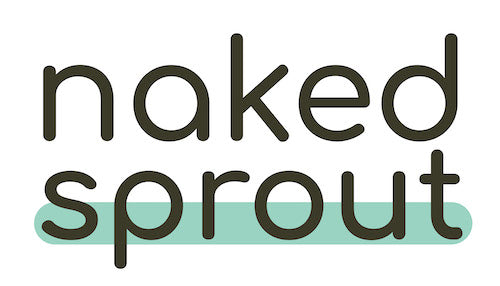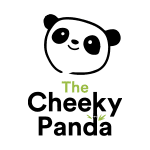Our green credentials
Defining sustainability
The dictionary defines "sustainable" as something that is "made in a way that causes little or no damage to the environment and therefore able to continue for a long time". In recent years, this word has become widely used as a way of speaking about environmental impact, with the more specific definition “causing, or made in a way that causes, little or no damage to the environment, and therefore able to continue for a long time.”
This is the definition our customers use, and it’s the definition we use.
This means we don't just focus on one narrow part of making Naked Sprout. We monitor and work to reduce our environmental impact across several key areas: our CO2e emissions, our raw materials, and our social impact. We also seek external certification from trusted international bodies and provide proof of our claims, so customers can judge our impact for themselves.
Evidencing our claims - index
Key claims
- The UK's most sustainable toilet roll | The UK's most eco friendly toilet roll
- Better for the planet | Gentler on the environment
- 50% smaller climate footprint than other eco brands
- No bleach
- No harsh chemicals
- No plastic
- Highest rated B Corp in our sector
- Rated No.1 eco toilet roll by Ethical Consumer
- Carbon cuts, not carbon credits
Product claims
- FSC certified bamboo and recycled materials (C007915)
- Food safe certification
- PFAS free
- BPA free
- REACH certification
- Wet strength and disintegration test
- Packaging made from 100% recycled material
- Vegan glue
- Bamboo is grown without any fertilisers or pesticides – Supplier 1 and Supplier 2
Factory claims
- Manufactured using 100% renewable energy
- Fossil fuel free factory
- Highest rated B Corp tissue factory
- 8,000 onsite solar panels
- Award winning energy innovations
- Water returned to the river in same condition it was taken
- Patented system to recirculate heat, reducing energy use significantly
- ISO 14067 CO2 footprint
- ISO 50001 Energy Savings
- ISO 14001 Environment
Climate footprint / emissions claims
- ISO 14067 lifecycle assessment
- Product climate footprint
- Carbon footprint standard
- CO2e assessed product
- Science based emissions reduction targets (SBTi)
Raw materials claims
Other claims
- The average person uses 127 toilet rolls per year
- Paper making is traditionally powered by fossil fuels
- Normal toilet roll wipes out 27,000 trees a day (9m a year)
- Most of the energy in paper making is used to generate the heat that dries the pulp
- Normal tissue products contain harsh chemicals
- Price comparison | Best priced eco toilet roll
- How we calculate our savings
- Printed marketing materials
The UK's most sustainable toilet roll
Below is a detailed comparison evidencing our claim to be “The UK’s most sustainable toilet roll.”
When we talk about being "best eco loo roll", "best sustainable loo roll", “better for the planet”, “gentler on the environment”, "greener" or similar, we are referring to being a more sustainable choice than other eco toilet roll brands, as evidenced in the below tables. The claim "best toilet paper delivery" is also evidenced in the below table.
Accreditations







Published LCA (ISO 14067 certified)
No published data
No published data
No published data
No published data
No published data
No published data
No published data
Renewable energy manufacturing (ISO 50001 certified)
No mention
No mention
No mention
No mention
No mention
No mention
No mention
Eco claims substantiated
No published evidence
No published evidence
No published evidence
No published evidence
No published evidence
No published evidence
No published evidence
Based on publicly available data gathered April 2024. Will be updated every 12 months (minimum).
Packaging and product







Raw materials (product)
Bamboo, recycled kraft and cardboard
Bamboo, recycled paper
Bamboo
Recycled paper
Bamboo
Bamboo
Bamboo
Bamboo
Raw materials (packaging)
Not specified
Not specified
Not specified
Not specified
Not specified
Not specified
Plastic free
No published evidence
No published evidence
No published evidence
No published evidence
No published evidence
No published evidence
No published evidence
Plastic free packaging
No published evidence
No published evidence
No published evidence
No published evidence
No published evidence
No published evidence
No published evidence
Unbleached
PFA free
No published evidence
No published evidence
No published evidence
No published evidence
No published evidence
No published evidence
Free delivery
£18+
£20+
£30+
£20+
£20+
£20+
£20+
£20+
Based on publicly available data gathered April 2024. Will be updated every 12 months (minimum).
Carbon footprint







Bamboo CO2e/KG
No published data
No published data
N/A
No published data
No published data
No published data
No published data
Based on publicly available data gathered April 2024. Will be updated every 12 months (minimum).
Factories and production







Manufactured (parent reel)
China, Europe, Rest of World, UK
Renewable energy manufacturing
Yes (ISO14067)
No published evidence
No published evidence
No published evidence
No published evidence
No published evidence
No published evidence
No published evidence
Based on publicly available data gathered April 2024. Will be updated every 12 months (minimum).
Supply chain







Validated SBTi delivery company
No published evidence
No published evidence
No published evidence
No published evidence
Publish supply chain and producers data
No published data
No published data
No published data
No published data
No published data
No published data
No published data
FSC certified
Yes. FSC: C007915
Yes. FSC: C190271
Yes. FSC: C171628
No publicly published data
Yes. FSC: C007915
FSC number not published
Yes. FSC: C134890
No
Based on publicly available data gathered April 2024. Will be updated every 12 months (minimum).
50% smaller climate footprint than other eco brands
“CO2e” stands for carbon dioxide equivalents. This unit is used to measure a climate footprint - the sum of all the greenhouse gases emitted during a product’s life cycle, expressed in terms of the global warming potential of the equivalent amount of carbon dioxide. We put this number on our packaging and product web pages to offer transparency and help you make informed choices when comparing products.
So consumers can make informed purchasing choices we are calling on the other toilet roll and tissue brands to publish their own climate footprint figures.
To give a picture of the difference between Naked Sprout toilet rolls and comparison products we have had an independent cradle-to-gate lifecycle analysis completed by Carbon Footprint Ltd. This analysis was conducted in line with ISO 14067, an international standard that provides the requirements and guidelines for reporting on the carbon footprint of a product.
This analysis created profiles of virgin wood toilet rolls manufactured in the UK, bamboo toilet rolls manufactured in China, and recycled toilet rolls manufactured in the UK, using published data around raw materials, distribution, and manufacturing.
Here is the data comparison.

'50% smaller' calculation
Naked Sprout bamboo toilet roll
Other bamboo toilet roll
Virgin wood toilet roll
Total per gram (gCO2e)
1.11
2.35
2.38
% difference
-53%
-
-
Naked Sprout recycled toilet roll
Other recycled toilet roll
Virgin wood toilet roll
Total per gram (gCO2e)
1.13
2.22
2.38
% difference
-49%
-
-
No bleach
At Naked Sprout we do not bleach our rolls in any way. We do not use any bleaching method, including Elemental Chlorine Bleaching, Elemental Chlorine Free (ECF) bleaching or Totally Chlorine Free (TCF) methods.
Our products have been independently tested to confirm they contain no bleach, and they are also ISEGA food safe certified.
Carbon cuts, not credits
When it comes to addressing the climate crisis, we agree with Greenpeace and the World Wildlife Fund, offsetting isn’t going to cut it. We don’t offset or purchase carbon credits at Naked Sprout. We calculate our climate footprint so that we can actually reduce it.
Water returned to river
The water from our factory can be returned to the river Fluvia, in Northern Spain, in the same condition as it was taken.
How do we know this? Every quarter, our factory conducts a water analysis to ensure water quality parameters remain within a permitted range, based on the water's average conditions. This means water is tested before it enters the factory, and after it has left the factory premises, and the two samples are compared to make sure there has not been a degradation in any of the environmental parameters measured. Here is an example of the analysis.
Product climate footprint
Each kilogram of Naked Sprout bamboo toilet roll we make generates 0.72 kilograms of CO2e, enough to drive 1.8 miles in a standard petrol-powered car. Each kilogram of Naked Sprout recycled toilet roll we make generates 0.76 kilograms of CO2e, enough to drive 1.9 miles in a standard petrol powered car. Our climate footprint takes into account the whole life cycle of our product, from raw material supply and transport, to manufacture, to final delivery.
Science based emissions reduction targets (SBTi)
The Science Based Targets initiative (SBTi) is a global partnership bringing together CDP, the United Nations Global Compact, the World Resources Institute and the World Wildlife Fund.
They create models that show practical changes companies can make to reduce emissions, in line with the best climate science. Then they lend this understanding to companies like Naked Sprout, providing technical assistance that addresses all aspects of our operations, so we know the most effective ways to reduce our impact.
Naked Sprout has approved near and long-term science-based emissions reduction targets with the SBTi. We have a clear path -with targets that are assessed and validated, and guidance on the best way forward. The SBTi has verified Naked Sprout’s net-zero science-based target by 2040.
Naked Sprout is registered on the SBTi website here.
Raw materials
Bamboo
- Bamboo is a renewable resource
- Bamboo grows more quickly than traditional timber sources
- Bamboo needs less land and water to grow
- View our full bamboo supply chain data
Recycled
- The cardboard and kraft comes from the area around our factory
- View our full recycled supply chain data
Price comparison
When comparing prices, we've taken the cost per 100 sheets for the largest/most cost-efficient pack of toilet roll available from each brand. (Exact packs detailed below table.) When a brand offers an ongoing discount for subscribing, we have used the discounted price.
When calculating average savings per year versus other brands, we've based this on an average household of 2.4 people, the average person using 127 rolls per year, and the average toilet roll containing 200 sheets per roll. We've then taken the below costs per 100 sheets for each brand and calculated the cost difference accordingly.








Cost per 100 sheets
£0.22
£0.23
£0.34
£0.29
£0.28
£0.29
£0.25
£0.34
£0.23
Prices correct as of July 2024; taken from brand websites, and Tesco (Andrex). Prices compared: Naked Sprout 96-pack with ongoing 10% subscription discount; Who Gives a Crap 48-pack Recycled; Cheeky Panda 48-pack natural colour unwrapped with ongoing 10% subscription discount; Andrex 24-pack; Serious Tissues 108-pack Recycled; Bazoo 48-pack bamboo unwrapped; Bumboo 48-pack bamboo unwrapped with ongoing 5% subscription discount; Bamboo Bobbi 48-pack with ongoing 10% subscription discount; Greencane Paper 96 pack (2x48-pack bulk buy option).
Paper savings calculation for unwrapped rolls
When calculating the amount of paper saved when you buy toilet rolls that have not been individually wrapped, we have measured the sheets of paper used by Who Gives a Crap to wrap their rolls (27.5cm x 42cm). We've multiplied the length of this sheet (42cm) by the average household size of 2.4 people, and an average annual usage of 127 rolls per person per year, which comes to a length of 128 metres of paper, taller than Big Ben, at 96m.
How we calculate
our savings
Per roll
Comparison
CO2e/kg saved (Bamboo | Recycled)
0.1909 | 0.1883
Road miles
Trees saved
0.00125
Tennis courts
Chemical litres saved
0.0097
Full bathtubs
Plastic kg saved
0.00185
African elephants
We often use comparisons to illustrate the environmental benefits of our processes and products. This helps us provide our customers with a more concrete picture of how Naked Sprout is more sustainable than comparison products. But these numbers are only helpful if they’re reliable, comparable, and verifiable. So here are the details of how we calculate our savings in CO2e, trees, harsh chemicals, and plastic, compared to standard ways of making toilet rolls.
Total rolls sold
Our total toilet rolls sold figure includes the confirmed sales of Naked Sprout bamboo and recycled toilet paper to date. We do not include charitable donations of toilet rolls. We assume that every Naked Sprout roll used means one less roll that has been made in the standard way (with virgin wood), and so we use these numbers to calculate our total savings.
CO2e saved
Our figures for our total CO2e savings are based on comparison figures for our own emissions and those of other toilet rolls calculated by Carbon Footprint Ltd. Sadly most toilet roll companies don’t publish their Life Cycle Assessments, so we asked Carbon Footprint to calculate a footprint for toilet rolls that are being made in the standard way. Carbon Footprint used available data for raw materials, distribution and manufacturing to make profiles for toilet rolls made in the UK from virgin timber, rolls made in the UK from recycled materials, and bamboo rolls made in China, to calculate profiles that are as close to real as possible. When we give a single figure for “CO2e saved” we are comparing the figures for our toilet rolls with the profile for standard toilet rolls made from virgin tree pulp. The difference between the figures for CO2e emissions (0.19088kg of CO2e per roll of bamboo toilet paper and 0.18829kg of CO2e per roll of recycled toilet paper) is multiplied by the total number of rolls sold by Naked Sprout to give the total savings in CO2e. We have translated these emissions savings into the emissions that would be emitted by driving in a standard family car, using the Greenhouse Gas Equivalencies Calculator from the US Environmental Protection Agency.
Trees saved
Our toilet rolls are made from FSC-certified bamboo or recycled cardboard and kraft paper, so there are no trees cut down to make them. Many standard toilet rolls still use virgin tree pulp, as discussed in this article published by The Independent on the 15th of May 2021, and this article also provides a figure of how many trees it takes to make toilet rolls (0.00125 trees per roll). We have taken this figure, multiplied it by the amount of rolls we have made, to give us a total “trees saved” figure. We’ve then translated this figure into hectares of UK woodland, using information about typical tree density given by the UK’s Woodland Trust (they give a range with a median figure of 1350 trees per hectare). We’ve converted this into tennis courts, because this makes it easier to visualise!
Chemicals saved
Because our toilet rolls are unbleached and do not use the same harsh chemicals found in many standard tissue products we are making significant savings of chemicals. The benchmark for the litres of chemicals used to make standard tissue products was calculated by Carbon Footprint Ltd as part of their profile of comparison products. The figure from this assessment was 0.0097 litres of harsh chemicals per roll. We have translated this figure for litres into bathtubs using the capacity of a standard UK bathtub provided by the bath experts at Royal Bathrooms (378.5 litres).
Plastic saved
Plastic kg saved per roll is based on a study of comparable products by LC Paper. The study produced a result of 0.444kg per 24 rolls, and 0.888kg per 48 rolls. We divide the total plastic saved per 24 roll by 24, and the total plastic saved per 48 rolls by 40, to generate a per roll figure of 0.0185kg per roll.
Printed marketing materials
We aim to minimise the use of physical materials as much as possible in our marketing. When printed materials are required, we ensure 100% recycled and recyclable materials are used. Our printing partner of choice is Seacourt, who utilise a waterless, VOC-free printing process. Their factory is zero waste, and is powered by 100% renewable energy.









